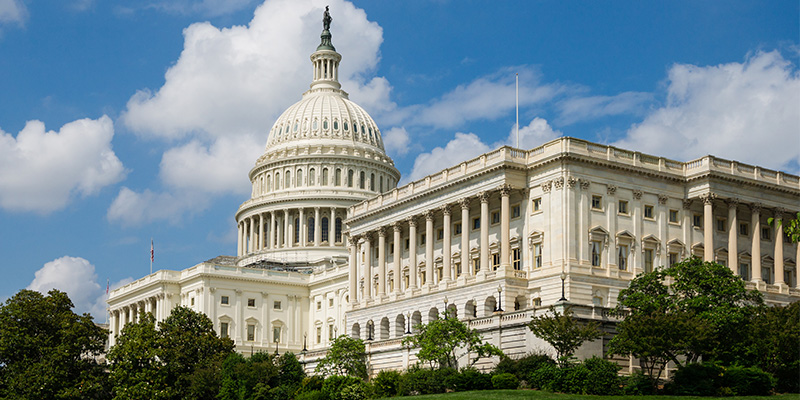While the primary focus of the national media during the 2022 election may have been on a potential “red wave” for control of the U.S. Senate and House of Representatives, there were over 6,200 state legislative races in 46 states according to the National Conference of State Legislatures. The outcomes of these state races have significant impacts on core policy issues of importance for commercial real estate, such as taxes, regulations and economic development. Generally, political pundits may conclude that the status quo was maintained in this election cycle, with Republicans remaining in political control in a majority of state legislatures and Democrats making modest but significant gains in a few.
Both the Republican Legislative Campaign Committee and the Democratic Legislative Campaign Committee can claim political successes, either maintaining or flipping political majorities in certain state chambers. These include lowering a chamber’s majority by the opposing party gaining seats, or ending veto-proof majorities.
The post-election analysis by MultiState shows 28 state legislatures under full Republican control, compared to 20 legislatures under full Democratic control. The political parties in the commonwealths of Pennsylvania and Virginia will have divided control between the two chambers heading into the 2023 session. Prior to this year’s election, Republicans controlled 30 state legislatures to 17 by the Democrats with 3 under divided control: Alaska (House bipartisan coalition), Minnesota and Virginia. The election breakdown by Multistate reflects Democrats taking over chamber majorities in the Michigan legislature, the Minnesota Senate, and the Pennsylvania House.
There are a few other key takeaways from the state-level elections. The National Conference of State Legislatures reports that legislatures in over half the states will have veto-proof majorities. Lawmakers within these states will have the ability, if needed, to override a governor’s veto of legislation passed by the legislative branch of government. Veto overrides are less likely to occur in some states, such as California, Florida and Ohio, where members of the same party control the governorship and both chambers of the legislature. Any policy differences within these states will likely be addressed before the legislation hits the governor’s desk for his or her signature. The conference’s report also notes that the New York State Assembly lost its veto-proof majority with Republicans gaining seats in November.
Single-party control of the governorship and both chambers of a legislature is known as the trifecta of state government. Government trifectas weaken the ability of the state’s minority party to pass legislation and influence legislative outcomes. Ballotpedia reports that Democrats have gained government trifectas in Maryland, Massachusetts, Michigan and Minnesota, but lost Nevada following the election. Arizona was the only government trifecta lost for Republicans. Overall, Republicans maintained the trifecta advantage over Democrats: 23 to 14.
Voters may not have significantly altered or reshaped the political and legislative landscape in most state legislatures following this year’s election, but lawmakers will continue to debate policies of importance for commercial real estate development. Many national organizations are expected to continue focusing on state legislatures in achieving policy objectives because of the political gridlock in Washington. Their policy objectives, if enacted, will certainly impact areas of importance to commercial development, which include tax policy, economic growth, workforce development, the environment and community development.
Regardless of the outcome of these state elections, the importance for NAIOP chapters and its members in remaining engaged in the legislative process, and advocating for the interest of commercial real estate, is undiminished. State lawmakers of both political parties will continue to debate issues affecting commercial real estate and development. The advocacy of NAIOP’s chapters and its members will ensure that their interests are taken into consideration by lawmakers as they debate policies affecting commercial real estate.














